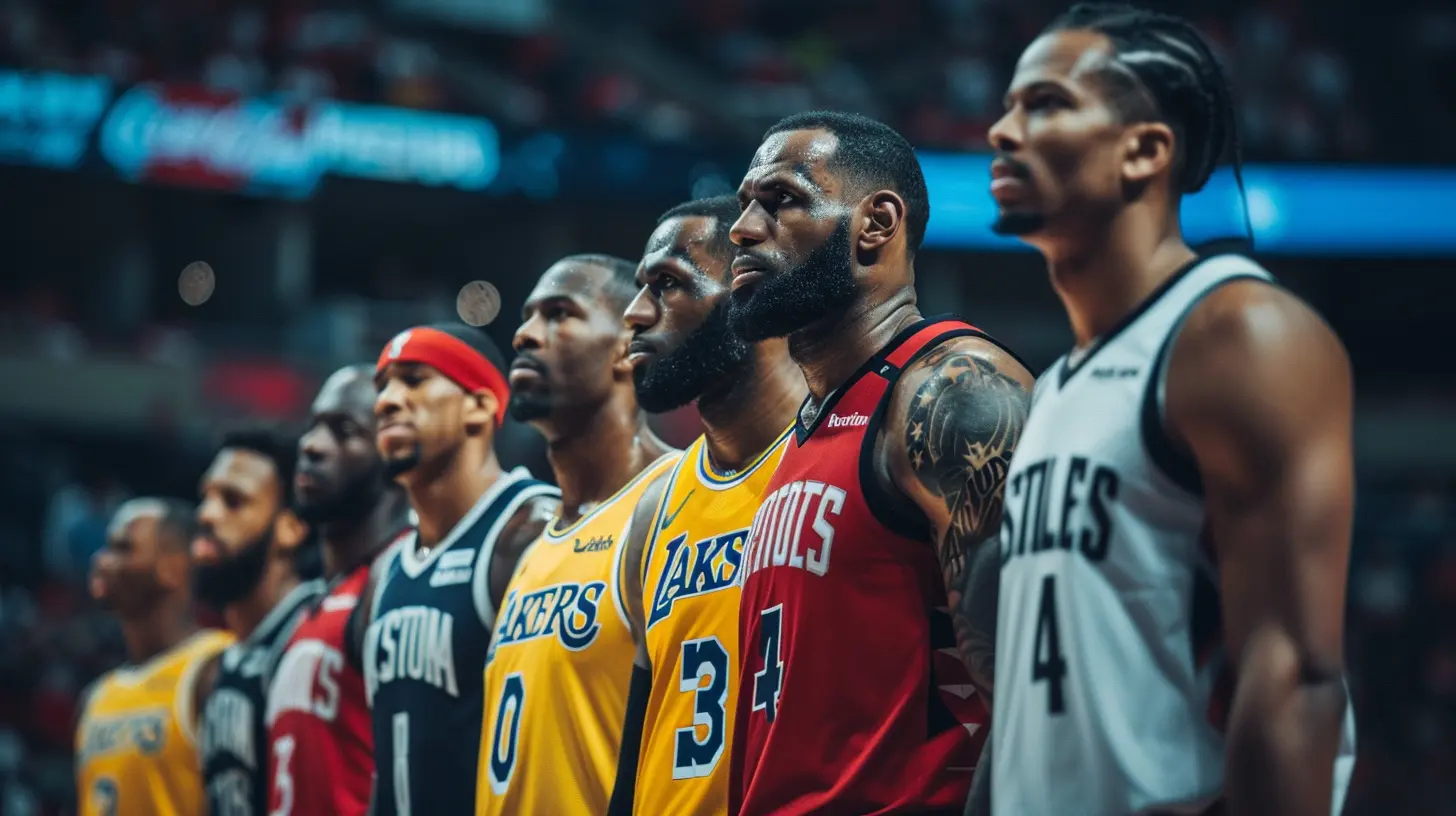The Rise of Team-Friendly Contracts in the Age of Superstars
24 April 2025
Introduction
In an era where superstar athletes command jaw-dropping salaries, something unexpected is happening—team-friendly contracts are becoming the secret weapon for building championship teams. But why would elite players willingly take less money, and how does this trend impact the competitive balance in sports?
Let’s dive into the fascinating shift towards team-friendly deals and how they’re redefining the business of sports.

What Exactly Is a Team-Friendly Contract?
A team-friendly contract is exactly what it sounds like—a deal that benefits the team as much as, if not more than, the player. These contracts usually involve a star athlete taking a lower salary than they could command in free agency or structuring their deal to allow flexibility in building a strong roster.The idea behind these contracts is simple: Winning is the ultimate goal. If a player sacrifices a bigger paycheck, their team has more financial wiggle room to sign other key pieces. It’s like a superstar chef choosing quality ingredients over an expensive silver spoon—it’s not about luxury, it’s about results.

Why Are Players Taking Less Money?
1. Chasing Championships Over Paychecks
For many athletes, money isn’t the ultimate motivator—winning is. Once a player lands a massive contract, securing their financial future, their priorities often shift to legacy.Take Tom Brady, for example. Throughout his career, he consistently took below-market deals, allowing his teams to build stronger rosters. The result? Seven Super Bowl rings and a career that will be talked about for generations.
2. The Power of Endorsements
Star players don’t just make money from their team contracts. Many are raking in millions from endorsement deals, commercials, and even social media partnerships.LeBron James, for instance, has built a business empire beyond basketball. His earnings from Nike, movie productions, and various investments far outweigh his NBA contracts. For athletes like him, taking a slight pay cut in salary is a small price to pay for a better supporting cast.
3. Building a Dynasty Over a Payday
Nobody wants to be the highest-paid player on a mediocre team. When players agree to reasonable contracts, front offices can afford to assemble championship-contending squads.Look at the Golden State Warriors’ dynasty. Steph Curry took a more manageable deal early in his career, which allowed the team to sign key players like Kevin Durant. That decision helped build one of the most dominant teams in NBA history.

The Impact of Team-Friendly Deals on Sports
1. More Balanced Teams = More Competitive Leagues
When superstars demand every penny possible, teams often struggle to surround them with talent, leading to top-heavy rosters with little depth. By accepting team-friendly deals, players create a more balanced league where more teams have a shot at contending.Would Giannis Antetokounmpo have won the 2021 championship without a well-rounded Milwaukee Bucks roster? Probably not. That’s why having cap space for solid role players makes all the difference.
2. Fans Appreciate Selfless Superstars
Fans respect players who prioritize winning over money. It shows loyalty and commitment to the franchise.Take Dirk Nowitzki, for example. He took less money in the later years of his career to help the Dallas Mavericks stay competitive. The result? He became one of the most beloved figures in NBA history, securing his legacy not just as a champion, but as a true team player.
3. Front Offices Have More Financial Flexibility
General managers love players who are willing to compromise on their salaries. It allows teams to make moves at the trade deadline, sign impactful free agents, and avoid salary cap nightmares.Look at Patrick Mahomes in the NFL. His record-breaking contract with the Kansas City Chiefs was structured in a way that allowed the team to stay competitive long-term rather than putting them in financial handcuffs.

The Potential Downsides of Team-Friendly Deals
While these contracts sound like a win-win for players and teams, there are some potential drawbacks.1. Players Risk Leaving Money on the Table
Not every player is a global superstar with huge endorsement deals. For mid-tier and aging athletes, taking a discount could mean missing out on their biggest payday.2. Owners & Teams Benefit the Most
Let’s be real—sports franchises are billion-dollar businesses. When players take less money, the biggest winners are often the team owners, who get to keep their profits while staying under salary cap limitations.3. Injuries Can Change Everything
Athletes have short careers, and one injury can change everything. If a player agrees to a discount and then suffers a career-altering injury, they may regret not securing every dollar possible when they had the chance.Will Team-Friendly Contracts Become the Norm?
While not every player will jump on board, the trend of team-friendly contracts isn’t going anywhere. The modern superstar understands that championships—not just paychecks—define legacies.Look for more players to negotiate intelligent deals, whether by structuring contracts creatively or deferring payments to give their team financial flexibility. The goal? Hoisting trophies, not just stacking bank accounts.
Final Thoughts
Team-friendly contracts represent a fascinating shift in modern sports, where winning is prioritized over pure financial gain. As players become more business-savvy—understanding the power of endorsements, legacy, and team-building—expect to see more of these deals in the future.At the end of the day, fans want one thing: championships. And in a salary-cap world, sometimes the best way to win is to take a little less to build something bigger.
all images in this post were generated using AI tools
Category:
Sports ContractsAuthor:

Ruben McCloud
Discussion
rate this article
7 comments
Jolene Myers
This article beautifully captures the evolving landscape of sports contracts. The balance between team success and player compensation is crucial, especially as superstars dominate headlines. It's refreshing to see teams prioritize sustainability while still rewarding talent. Here's hoping this trend fosters more competitive and resilient franchises in the years to come!
May 7, 2025 at 7:33 PM

Ruben McCloud
Thank you for your thoughtful comment! I completely agree—finding that balance is essential for the future of the sport. Here's to a thriving and competitive landscape ahead!
Faelith McGarvey
Absolutely love this trend! Team-friendly contracts bring balance and excitement to the game, allowing more talent to shine and enhancing competitive spirit. Can’t wait to see how this evolves!
May 1, 2025 at 3:06 AM

Ruben McCloud
Thank you! I'm glad you share my enthusiasm for team-friendly contracts—they really do foster a more balanced and exciting landscape for talent in the game!
Simon Snyder
Team-friendly contracts are reshaping the landscape of professional sports, allowing franchises to retain talent while managing salary cap constraints. This trend underscores a strategic shift as teams prioritize long-term sustainability over short-term superstar acquisitions.
April 29, 2025 at 2:56 AM

Ruben McCloud
Thank you for your insightful comment! Team-friendly contracts indeed represent a significant shift in strategy, emphasizing sustainability and talent retention in today's sports landscape.
Beatrice Good
The emergence of team-friendly contracts amid superstar culture highlights a significant shift in sports economics. While it allows franchises to maintain competitive rosters, there's a risk of undervaluing individual talent. This trend could stifle player autonomy and long-term financial security, raising questions about fairness in an evolving market.
April 28, 2025 at 11:40 AM

Ruben McCloud
Thank you for your insightful comment! You raise important points about the balance between team dynamics and individual player value in today's sports economy. It's crucial to consider how these trends impact player autonomy and financial security moving forward.
Jett Anderson
Smart teams thrive; players must adapt to survive.
April 28, 2025 at 4:11 AM

Ruben McCloud
Absolutely! Team-friendly contracts foster collaboration and adaptability, allowing teams to maximize their talent and thrive in today's competitive landscape.
Skyler McManus
In a realm where stars align, Team-friendly deals let dreams entwine. Balance found in unity's art, Players and clubs, a beating heart. Together they rise, a future to chart.
April 26, 2025 at 12:42 PM

Ruben McCloud
Thank you for capturing the essence of team-friendly contracts! They truly foster collaboration and pave the way for a brighter future in sports.
Dominique Young
This article highlights a crucial shift in sports economics. Team-friendly contracts can foster long-term success and stability, benefiting teams and players alike. However, it’s essential to consider the potential impact on player morale and the overall competitiveness within the league. A delicate balance is needed.
April 25, 2025 at 5:01 AM

Ruben McCloud
Thank you for your insightful comment! Balancing team-friendly contracts with player morale is indeed vital for maintaining competitiveness and long-term success in the league.





